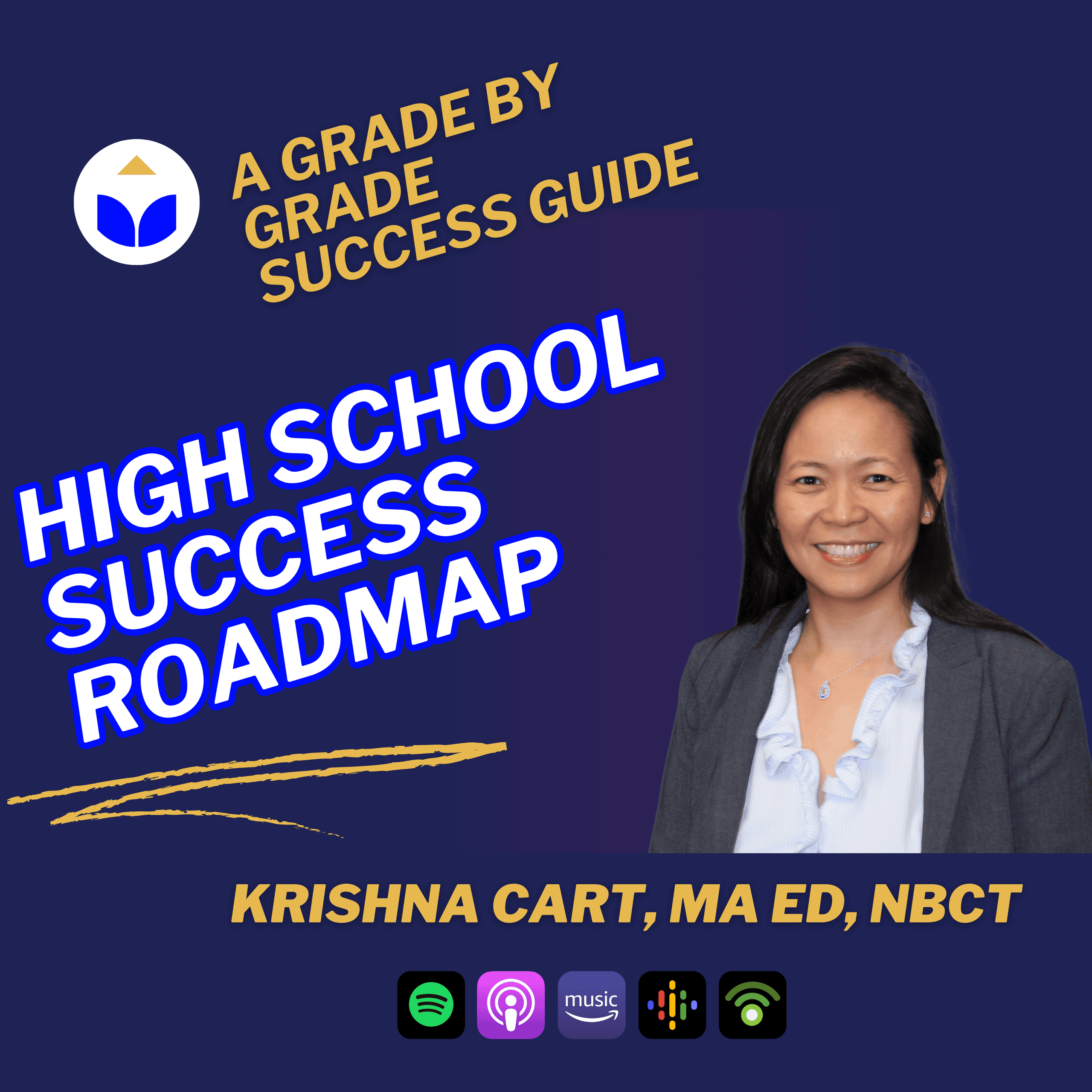Episode Transcript
[00:00:00] Comprehension becomes meaningful when children connect what they read to what they already know. Parental involvement plays a significant role. Studies consistently find that purposeful parent led reading activities improve reading comprehension, confidence and motivation. Let's make reading something that clicks not just for your child, but for your whole family.
[00:00:29] Welcome to the Learning by Design podcast, the signature podcast of the Masterpiece Academy. This is where we help parents, learners and leaders grow with purpose by building strong learning habits rooted in who God designed them to be. I'm Krishna Kart and I'm the literacy coach and educator at the Masterpiece Academy. We believe every child is uniquely created to thrive.
[00:00:56] Ephesians 2:10 reminds us, for we are God's masterpiece. He has created us anew in Christ Jesus so we can do the good things he planned for us long ago.
[00:01:09] Every episode we build is built on that truth, and today is no different.
[00:01:16] If you're a parent who wants to support your child's reading journey without becoming a full time teacher, you're in the right place.
[00:01:25] I've spent years helping students and families unlock the thinking processes behind strong comprehension.
[00:01:32] And the good news is you can do this at home with simple research backed strategies.
[00:01:40] In this episode, I'll walk you through five practical ways to boost your child's reading comprehension.
[00:01:47] These tools work whether your child is struggling to understand what they need or simply ready to grow.
[00:01:55] You won't need special training. You just need curiosity, conversation and a few intentional habits.
[00:02:01] And maybe you're thinking, why does this matter?
[00:02:05] Well, the International Literacy association or ila, tells us that comprehension becomes meaningful when children connect what they read to what they already know. Research also indicates that parental involvement plays a significant role.
[00:02:22] Studies consistently find that purposeful parent led reading activities improve reading comprehension, confidence and motivation.
[00:02:31] So today, let's make reading something that clicks, not just for your child, but for your whole family. Let's dig into five proven strategies you can start using tonight.
[00:02:45] Okay, so my comprehension matters.
[00:02:50] It's tempting to equate reading with decoding, which means sounding out the words. But true reading success comes when children make meaning. The ILA emphasizes this comprehension is not optional. It's core.
[00:03:07] Research also indicates that it's not just reading more that matters, it's how parents engage in reading and the kind of support they provide. So for example, home literacy environment studies found that parental literacy activities and parental literacy expectations had a significantly higher correlation with children's reading comprehension than simply having resources at home.
[00:03:36] And here's the good news. You don't need to be a teacher. You simply need to engage with purpose.
[00:03:43] Ask thoughtful questions and model effective thinking.
[00:03:47] So the strategies we'll cover are the ones that you can apply right away.
[00:03:52] Okay, so here we go.
[00:03:55] Strategy number one Ask questions before, during, and after.
[00:04:01] So the first strategy Purposeful questioning across the stages of reading. You can ask before reading questions like what might this story be about? What you already know about this topic? And then you know during reading you can pause. Good stopping point. And you, you got. You can ask, what's happening now?
[00:04:23] What do you think that character did that? What clue tells you that?
[00:04:28] And then after reading, ask what was the main idea? How did the story or passage change the character?
[00:04:37] What connections do you see to your own life?
[00:04:40] And then you might ask why this matters. Studies show that dialogic reading when an adult invites children to talk, ask and respond is more effective than passive reading. So for example, one review noted that dialogic reading and inferential questioning have a stronger influence on comprehension than simple story reading. Okay, Parent tip.
[00:05:06] Choose two to three questions from each stage and keep them sticky. Noted in your reading area. Let your child pick one that will make it very collaborative.
[00:05:17] Also, you can emphasize prediction and reflection. This helps your child activate prior knowledge, which is crucial. Research going back decades shows that background knowledge supports comprehension.
[00:05:30] And another thing, do you want an extra boost? Use a simple graphic organizer like before, during, and after table where you jot down short answers immediately after reading. Or you can just give it to your child. Or if your child cannot write yet, you can ask your child to draw.
[00:05:47] Okay, now are you ready for strategy number two? Strategy number two Focus on main idea and key details.
[00:05:55] Helping your child understand the main idea and how key details support it. This is often harder than it sounds, but kids can get lost in fan facts, side stories, or literal details without seeing the big picture. And here's how to do it. After reading, Ask if you're telling a friend what this text is mostly about in one or two sentences, what would you say? Then ask which parts Key detail supports your summary, according to ila. To the ila, comprehension begins with a literal understanding of what is read. But learners must also integrate and think critically about the text. Literacy Worldwide support this all literature worldwide.
[00:06:41] Parent tip. Try using a sticky note or index card method. Write the main idea on one card on others. Write key details and let your child match them together or rearrange them.
[00:06:53] Another tool have your child teach you tell me the big idea of the chapter and then three things that prove it. Teaching is a strong comprehension activity.
[00:07:04] Okay, and then now let's move on to Strategy number three Model and encourage inferencing. Well, inferencing is tough because inferencing means reading between the lines.
[00:07:18] Many children struggle with this because they expect everything to be stated explicitly. When in real text, authors often omit details and expect readers to fill in the gaps.
[00:07:31] You, as a parent can model your thinking out loud. You can say, well, I noticed the characters were slumped and the rain was.
[00:07:41] You can say, you as a parent can model your thinking out loud. You may say, I noticed that character's shoulders were slumped and the rain was pouring.
[00:07:52] I'm thinking she might be feeling sad or worried. And then you can ask your child, what clue led you to that idea? What else might be true even though the author didn't say it?
[00:08:05] Well, Research indicates that embedding inferential questions in leading tasks significantly enhances comprehension. For example, meta analysis and literature reviews identify it as a critical component of parental engagement that goes beyond mere reading aloud. Okay, parent tip. During reading, pause regularly and say, what do you think is happening beneath the surface? What makes you think?
[00:08:32] What makes you think that? Let your child pause the text, think and talk.
[00:08:38] This also fosters curiosity and deeper thinking rather than passive consumption.
[00:08:44] Okay then strategy number four. Turn reading into a conversation, not a quiz.
[00:08:52] Well, keep the tone low, pressure, conversational and reflective, not quiz time. You may use some of the sentences here. Okay, ready? These sentence stems when talking with your child helps that okay, this reminds me of and then let your child continue.
[00:09:10] I was surprised when you know that's a good thing. I noticed that.
[00:09:17] And then another one is one thing I'm still wondering about is and then let your child fill in. Okay, why this matters Research shows that it is the quality of parent child reading interaction, not just the frequency, that matters.
[00:09:33] Interactive reflective talk helps children process text deeply.
[00:09:38] After reading together, invite your child to teach you or share with you what they thought you might say. I noticed you paused here. And then ask a question, what were you thinking?
[00:09:50] This reinforces metacognitive awareness. That means thinking about thinking and, you know, make it fun. Let your child talk more than you ask open ended questions. Celebrate curiosity, not just right or wrong answers.
[00:10:04] Okay. And finally, strategy number five Use everyday reading moments and build home literacy environment.
[00:10:14] Okay, Comprehension practice doesn't only happen with reading time, it happens all the time. So the home literacy environment research shows that parental literacy activities and activities and expectations are strongly linked to child's reading comprehension.
[00:10:30] For example, one meta analysis found that parents involvement and literacy expectations of children had a significantly higher correlation with children's reading comprehension than home literacy resources did. Isn't it fascinating?
[00:10:44] So use text in everyday life, like instructions, tv, movies, science, recipes, you know, whatever they see in travel. Use multimodal ask. What do you think this means? What steps will you do next? Okay. Or sometimes even after watching a movie, you can do that too.
[00:11:03] You can debrief, build a routine of talking about what you read or encounter. Let's look at this article together. What's the main idea? What surprised you? And then set expectations.
[00:11:16] I expect.
[00:11:18] I expect you to think about what you read, to ask questions, and to talk about it with me.
[00:11:24] Parent Tip Create a reading corner or thinking spot, even if it's just 10 minutes after dinner. Treat it as your joint time. You talk, your child reads or you read together. Ask questions, reflect. And again, it matters how you engage, not just how often Good involvement and habits lead to stronger comprehension.
[00:11:49] Okay, so if you found these strategies helpful and you ready to go deeper, I invite you to join our upcoming Parent Literacy workshop at Ashburn in Wun Loudon. And at the workshop you'll practice we will practice reading comprehension question stems in small groups. We will use writing scaffolds and learn how to support writing at home. We will try phonics and phoneme awareness games you can use immediately with your young learners.
[00:12:17] And you'll get a take Home parent toolkit with guides, cheat sheets, prompts and graphic organizers. You'll walk away able to use these strategies the same day, confident and ready. Okay, so reserve your spot today at our website www.masterpiecekato.org and then forward slash event. Unlock your child's literacy superpowers. Reading and writing Phonics workshop. Okay, we'll see you there. And stay tuned to Learning by Design.
[00:12:50] Thanks for tuning in. And remember, you don't have to be a teacher to raise a strong reader. You just need to be curious, supportive parent.
[00:12:59] Until next time. Happy reading.
[00:13:13] Sam.


